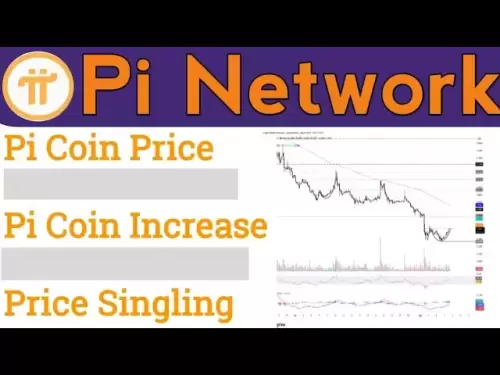-
 Bitcoin
Bitcoin $118300
1.01% -
 Ethereum
Ethereum $4215
0.69% -
 XRP
XRP $3.198
-3.83% -
 Tether USDt
Tether USDt $1.000
-0.01% -
 BNB
BNB $803.4
-0.53% -
 Solana
Solana $180.3
-0.67% -
 USDC
USDC $0.9998
-0.01% -
 Dogecoin
Dogecoin $0.2334
-1.49% -
 TRON
TRON $0.3394
0.86% -
 Cardano
Cardano $0.7980
-1.45% -
 Chainlink
Chainlink $22.19
6.65% -
 Hyperliquid
Hyperliquid $43.41
0.13% -
 Stellar
Stellar $0.4407
-3.13% -
 Sui
Sui $3.843
-2.24% -
 Bitcoin Cash
Bitcoin Cash $564.7
-3.74% -
 Hedera
Hedera $0.2588
-3.41% -
 Ethena USDe
Ethena USDe $1.001
0.00% -
 Avalanche
Avalanche $23.64
-3.37% -
 Litecoin
Litecoin $120.0
-4.01% -
 Toncoin
Toncoin $3.342
-1.11% -
 UNUS SED LEO
UNUS SED LEO $9.038
0.60% -
 Shiba Inu
Shiba Inu $0.00001347
-0.81% -
 Uniswap
Uniswap $10.69
-4.58% -
 Polkadot
Polkadot $4.034
-1.30% -
 Dai
Dai $1.000
0.01% -
 Bitget Token
Bitget Token $4.472
-1.52% -
 Cronos
Cronos $0.1571
-3.04% -
 Pepe
Pepe $0.00001207
-2.21% -
 Monero
Monero $273.8
-3.19% -
 Ethena
Ethena $0.7520
2.75%
What are the risk comparisons between perpetual contracts and spot trading?
Perpetual contracts offer leveraged trading, allowing traders to amplify gains and losses, while spot trading involves lower risk due to the absence of leverage.
Feb 26, 2025 at 12:36 am
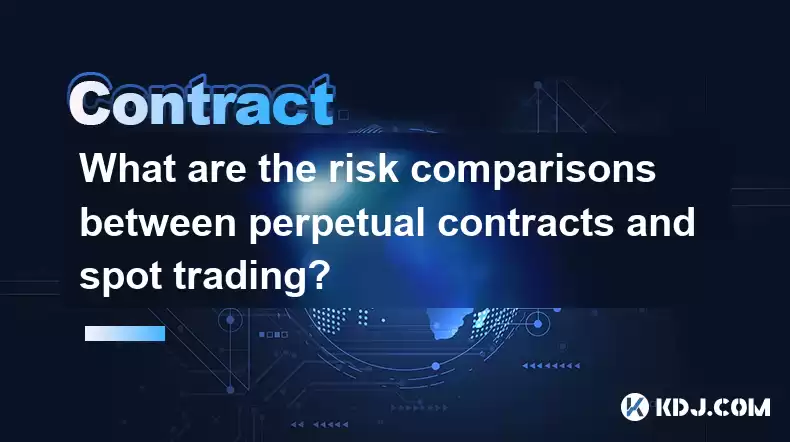
Key Points:
- Understanding Perpetual Contracts and Spot Trading
- Risk Factors in Perpetual Contracts vs. Spot Trading
- Leverage and Margin Risk
- Price Fluctuations and Liquidation Risk
- Funding Rate Risk
- Counterparty Risk
- Emotional Risk
Understanding Perpetual Contracts and Spot Trading:
- Perpetual Contracts: Derivatives that track the underlying asset's price without an expiry date, allowing traders to speculate on price movements indefinitely. Leverage is typically used, multiplying the potential gains and losses.
- Spot Trading: Buying and selling of an asset at its current market price, with immediate settlement and ownership transfer. Leverage is typically not used.
Risk Factors in Perpetual Contracts vs. Spot Trading:
Leverage and Margin Risk:
- Perpetual Contracts: Leverage can significantly amplify gains and losses. Insufficient margin coverage can lead to account liquidation if the market moves against the trader.
- Spot Trading: No leverage typically used, reducing margin risk.
Price Fluctuations and Liquidation Risk:
- Perpetual Contracts: Price fluctuations can be more pronounced than in spot trading, especially during market volatility. Unfavorable price movements can trigger liquidations, resulting in losses greater than the initial investment.
- Spot Trading: Price fluctuations are more gradual, reducing the risk of sudden liquidations.
Funding Rate Risk:
- Perpetual Contracts: Perpetual contracts have a funding rate that adjusts imbalances between longs and shorts. Traders holding long positions may incur additional costs (positive funding rate), while those holding short positions may receive payments (negative funding rate). This can impact overall profitability.
- Spot Trading: No funding rate mechanism.
Counterparty Risk:
- Perpetual Contracts: Traders rely on the exchange as the counterparty in their trades. Exchange solvency and operational stability are critical factors in managing counterparty risk.
- Spot Trading: Traders interact with multiple counterparties in decentralized markets, reducing counterparty risk but introducing potential for slippage and execution delays.
Emotional Risk:
- Perpetual Contracts: Leverage and the potential for significant gains and losses can lead to emotional trading decisions. Overconfidence and hasty trade executions can amplify risks.
- Spot Trading: Lower leverage typically reduces emotional risk, but traders should still be mindful of market volatility and their trading strategies.
FAQs:
Q: Which is less risky, perpetual contracts or spot trading?
A: Spot trading generally carries lower risk due to the absence of leverage and reduced price volatility. However, all trading involves risks.
Q: What factors affect the funding rate in perpetual contracts?
A: The funding rate is determined by supply and demand imbalances, reflecting the premium or discount associated with holding long or short positions.
Q: How do I manage liquidation risk in perpetual contracts?
A: Maintaining sufficient margin coverage, using stop-loss orders, and monitoring market conditions closely can help mitigate liquidation risk.
Q: Are perpetual contracts a good investment?
A: Perpetual contracts can provide opportunities for speculation and portfolio diversification, but they are not considered a traditional investment due to their high risk profile.
Disclaimer:info@kdj.com
The information provided is not trading advice. kdj.com does not assume any responsibility for any investments made based on the information provided in this article. Cryptocurrencies are highly volatile and it is highly recommended that you invest with caution after thorough research!
If you believe that the content used on this website infringes your copyright, please contact us immediately (info@kdj.com) and we will delete it promptly.
- Dogwifhat's Comeback: Solana Meme Coin Mania and Beyond!
- 2025-08-10 18:30:15
- Shiba Inu Price Drop Alert: Can Google AI Predict the Future?
- 2025-08-10 18:30:15
- NEAR Protocol Rebound: Eyes on $4.63 as Bullish Momentum Builds
- 2025-08-10 17:30:13
- Bitcoin Cash Halving: Will the Price Fall or Fly?
- 2025-08-10 17:30:13
- Uniswap (UNI) Under Bearish Pressure: A Technical Analysis Deep Dive
- 2025-08-10 17:30:15
- DOT Price on the Rise: Polkadot's Bullish Momentum Heats Up!
- 2025-08-10 17:30:15
Related knowledge
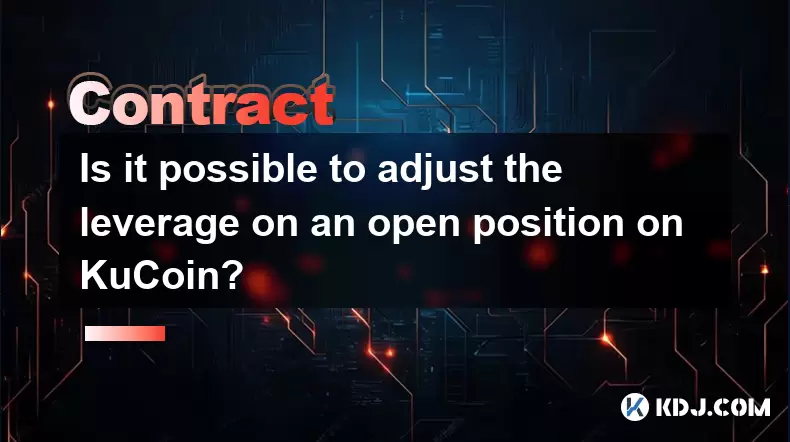
Is it possible to adjust the leverage on an open position on KuCoin?
Aug 09,2025 at 08:21pm
Understanding Leverage in KuCoin Futures TradingLeverage in KuCoin Futures allows traders to amplify their exposure to price movements by borrowing fu...
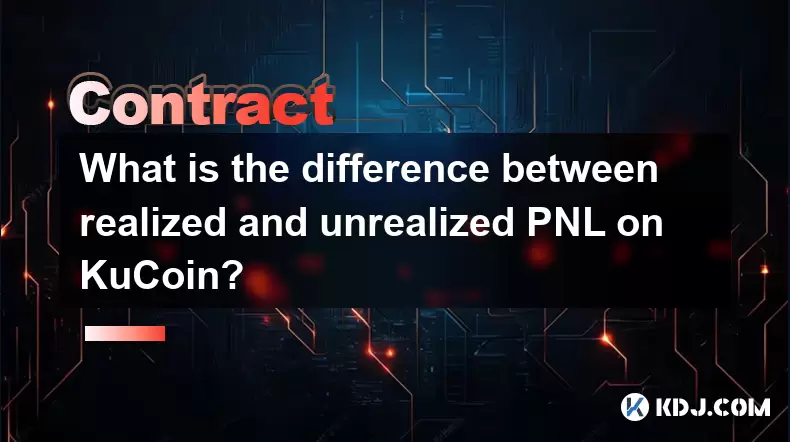
What is the difference between realized and unrealized PNL on KuCoin?
Aug 09,2025 at 01:49am
Understanding Realized and Unrealized PNL on KuCoinWhen trading on KuCoin, especially in futures and perpetual contracts, understanding the distinctio...
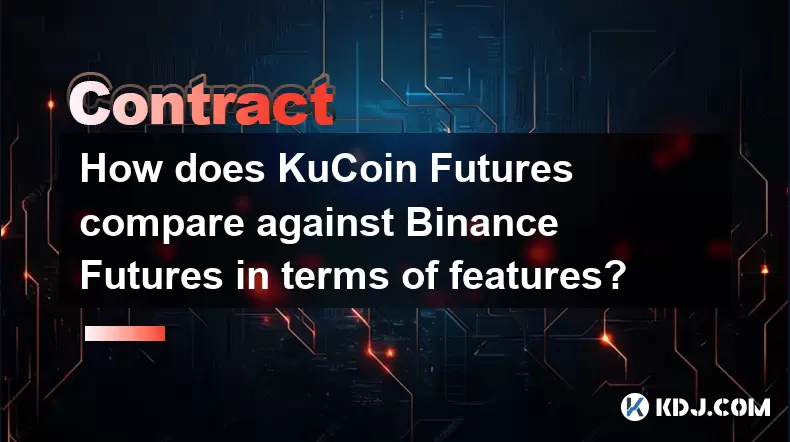
How does KuCoin Futures compare against Binance Futures in terms of features?
Aug 09,2025 at 03:22am
Trading Interface and User ExperienceThe trading interface is a critical component when comparing KuCoin Futures and Binance Futures, as it directly i...
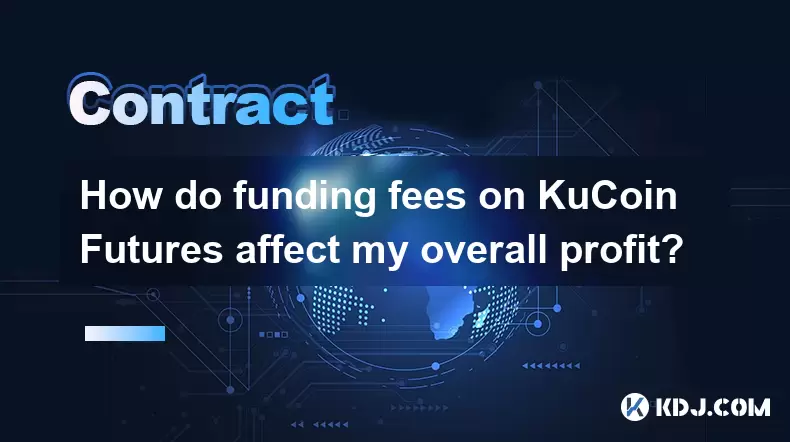
How do funding fees on KuCoin Futures affect my overall profit?
Aug 09,2025 at 08:22am
Understanding Funding Fees on KuCoin FuturesFunding fees on KuCoin Futures are periodic payments exchanged between long and short position holders to ...
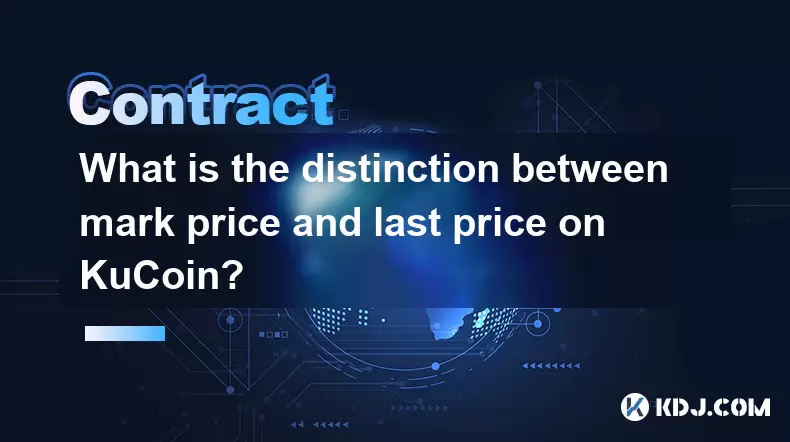
What is the distinction between mark price and last price on KuCoin?
Aug 08,2025 at 01:58pm
Understanding the Basics of Price in Cryptocurrency TradingIn cryptocurrency exchanges like KuCoin, two key price indicators frequently appear on trad...
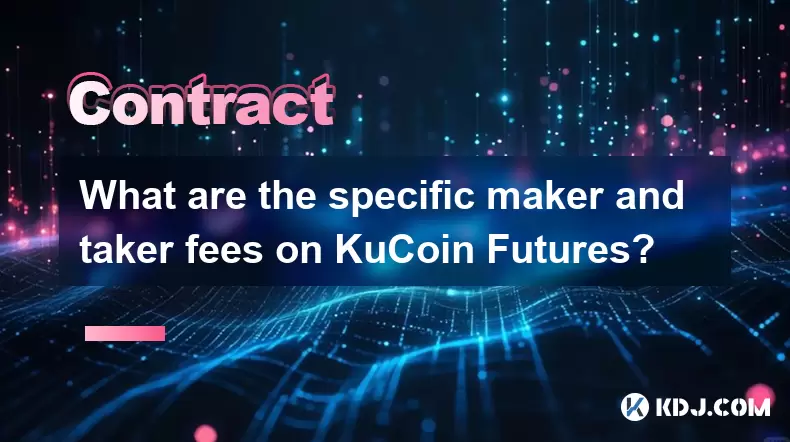
What are the specific maker and taker fees on KuCoin Futures?
Aug 08,2025 at 08:28am
Understanding Maker and Taker Fees on KuCoin FuturesWhen trading on KuCoin Futures, users encounter two primary types of fees: maker fees and taker fe...

Is it possible to adjust the leverage on an open position on KuCoin?
Aug 09,2025 at 08:21pm
Understanding Leverage in KuCoin Futures TradingLeverage in KuCoin Futures allows traders to amplify their exposure to price movements by borrowing fu...

What is the difference between realized and unrealized PNL on KuCoin?
Aug 09,2025 at 01:49am
Understanding Realized and Unrealized PNL on KuCoinWhen trading on KuCoin, especially in futures and perpetual contracts, understanding the distinctio...

How does KuCoin Futures compare against Binance Futures in terms of features?
Aug 09,2025 at 03:22am
Trading Interface and User ExperienceThe trading interface is a critical component when comparing KuCoin Futures and Binance Futures, as it directly i...

How do funding fees on KuCoin Futures affect my overall profit?
Aug 09,2025 at 08:22am
Understanding Funding Fees on KuCoin FuturesFunding fees on KuCoin Futures are periodic payments exchanged between long and short position holders to ...

What is the distinction between mark price and last price on KuCoin?
Aug 08,2025 at 01:58pm
Understanding the Basics of Price in Cryptocurrency TradingIn cryptocurrency exchanges like KuCoin, two key price indicators frequently appear on trad...

What are the specific maker and taker fees on KuCoin Futures?
Aug 08,2025 at 08:28am
Understanding Maker and Taker Fees on KuCoin FuturesWhen trading on KuCoin Futures, users encounter two primary types of fees: maker fees and taker fe...
See all articles

























